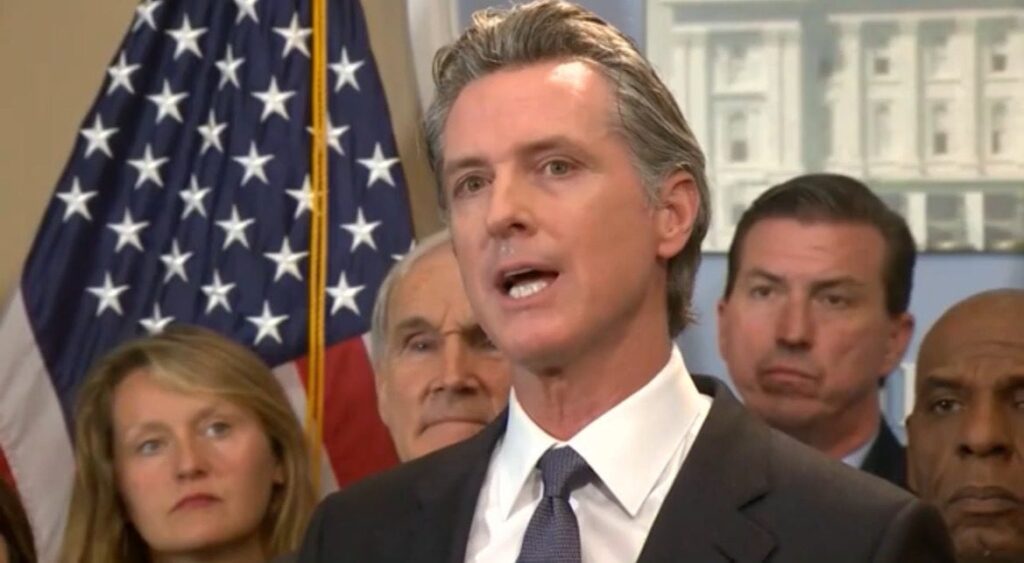Deep blue states like California and New York are starting to see tax revenue go down while the exact opposite is happening in many red states.
This was completely predictable, especially in California, which is losing businesses almost every week due to rising crime.
California and New York have also been losing population over the last few years for a number of reasons, including crime, high taxes and strict rules related to COVID.
It was only a matter of time.
The Washington Free Beacon reports:
Democratic Strongholds Are Seeing Their Tax Revenue Plummet
Heavily taxed blue states such as New York and California last year had some of the country’s most drastic drops in tax revenue. At the same time, Republican states are enjoying the highest revenue increases even as they keep income taxes low.
Under Democratic governor Gavin Newsom, California has turned a $100 billion budget surplus into a $32 billion deficit, Bloomberg reported Friday, forcing the state to trim its “lofty climate change program, delay funding, and increase internal borrowing.” In this year alone, the once-Golden State has seen its tax revenue crater by nearly 25 percent as it hemorrhages wealthy residents to lower-taxed states.
New York, which under Democratic governor Kathy Hochul has the highest tax burden in the country, saw a similar revenue drop of almost 20 percent. Both California and New York last year saw their populations shrink by about 294,000 residents, Bloomberg reported.
California and New York aren’t the only blue states with tax problems. Illinois, New Jersey, and Hawaii also reported drops, according to Bloomberg, though theirs weren’t nearly as drastic.
Illinois is another good example, where life is about to get more expensive.
From NBC News in Chicago:
Groceries, gas in Illinois to become more expensive come July 1
Illinois Grocery Tax
Last year, Illinois’ 1% grocery tax was suspended as part of a 2022 $46.5 billion state budget plan aimed at providing relief to families struggling with rising costs of goods and inflation. Officials said the extension was predicted to save taxpayers upwards to $400 million through the fiscal year.
The tax was suspended for 12 months on items that included “food for human consumption that is to be consumed off the premises where it is sold.” Alcoholic beverages, soft drinks, candy and food prepared for immediate consumption were not included in the grocery tax suspension…
Illinois Gas Tax
Also under the state’s 2023 fiscal year budget, a mandatory increase in the gas tax that was tied to inflation was delayed by six months last year.
That increase, which took effect on Jan. 1, saw the tax rise to 8.2%, meaning the rate for Illinois motorists climbed by roughly 3.2 cents per gallon earlier this year, bringing the state’s total fuel tax on unleaded gasoline to 42.4 cents per gallon.
Less tax revenue means leaders in these states are going to start having to cut some services or raise taxes even higher. It’s a vicious cycle and it leads nowhere good.


